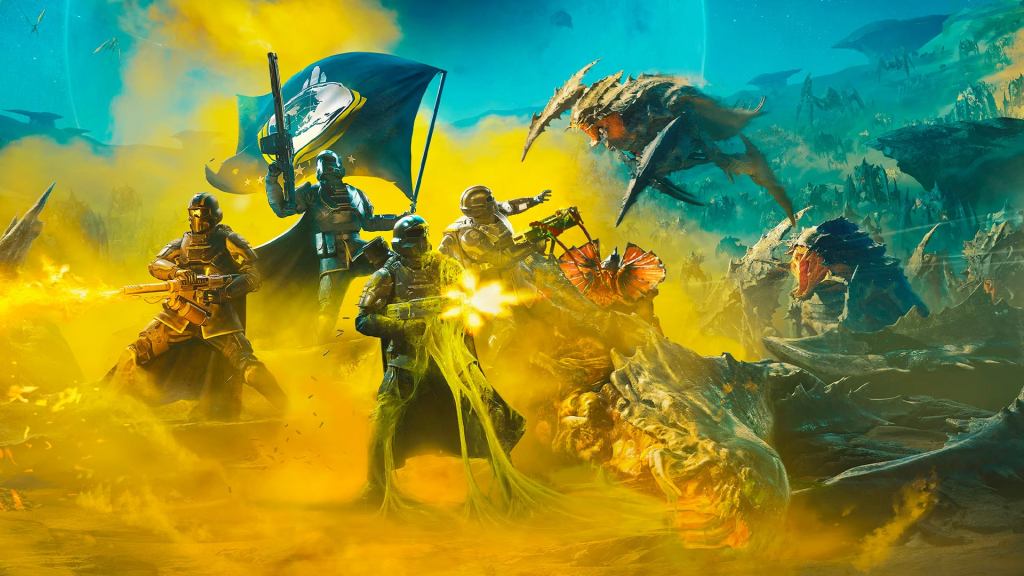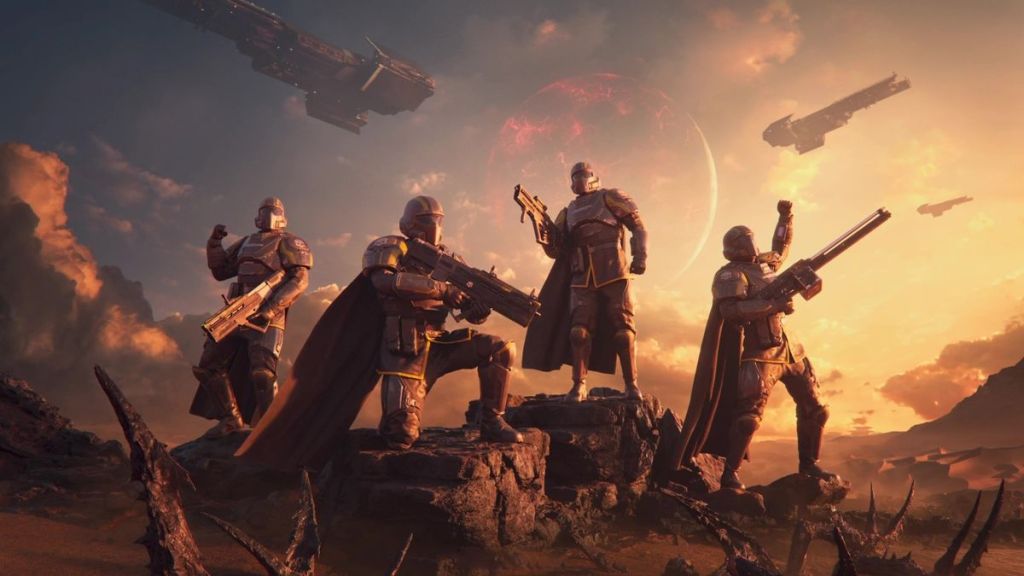Helldivers 2: how Sony destroyed, and maybe saved, the hugely popular game in a single weekend
How to Lose Gamers & Alienate People

It’s been a tumultuous few days for the team behind Helldivers 2, the massive co-op shooter that’s taken PS5 consoles and PCs by storm. And in that sentence lies the trouble Sony and, by proxy, the Helldivers 2 team at Arrowhead Game Studios found itself in.
Sony’s terms and conditions pitted PS5 gamers against those using a PC. But it wasn’t more of a battle, rather a culling of PC gamers from around 177 countries on Steam. But what exactly happened? Here’s the brief story on how Sony almost destroyed one of its best most recent IPs in a single weekend.
Let’s (hell) dive into it
In case you’ve been living a harmonious life away from the internet over the past few weeks, we’ll fill you in on the world of Helldivers 2. Helldivers 2 is the online co-op shooter that pits gun totin’ democracy spreaders against the enemies threatening to eradicate their way of life. Have the people you’re fighting against actually done anything wrong? No, but democracy must be spread by the barrel of a gun.
Helldivers 2 is a very tongue in cheek satire on global imperialism, and takes more than a little inspiration from Starship Troopers. And it’s very, very good. It’s so good that hundreds of thousands of players have flocked to the game since its release in February. But recently, there’s been an exodus. Not by gamer fatigue or lack of interest. Rather, it’s down to Sony’s corporate interest.
Sony owns the Helldivers IP, and as such has a pretty big say in how the game develops. As such, Sony wanted gamers to sign up for its PSN service, but did it in a strange way.
On 3 May, Sony announced that PC gamers would need to link their PSN accounts to their Steam profile to continue playing the game they’d already paid real life human money for. Sure, it’s a further collecting of data of Sony’s part, but it’s not that bad, right? From EA to Bethesda, many companies require you to create an account to play its game. The only snag in this scenario, is that the PSN network is not currently available in many parts of the world. As such, Steam removed purchase of the game from 177 countries.
Once this action came into effect, a (hell)storm came with it. Over 211,000 negative reviews were left on the Helldivers 2 Steam page. Message boards were flooded with one-time Helldivers 2 players from Japan, Algeria, Jordan and the Isle of Man. Refunds were offered, but by that time trust had been lost with the gamers who had already plunged hundreds of hours into one of Sony’s most recent victories.
Why?

You might ask why Sony would shoot themselves in the foot over this. But when it comes to multibillion dollar corporations, the answer’s usually pretty easy. This misguided decision was made in the pursuit of, you guessed it, money. As PC Gamer reported, over half of Helldivers 2 players in the US play the game on PC. That’s a lot of people and, most importantly to Sony, a lot of people it can sign up to the PSN service.
How Sony fixed it (sort of)

What Sony perhaps underestimated was the fan backlash. After a long weekend of review bombing and justified gripe, on 6 May, Sony announced it was scrapping its Helldivers 2 plans. In a Tweet, Sony outlined how it had “heard [fan] feedback” and that it “will not be moving forward” with its update.
This is undoubtedly a win for Helldivers 2 players, who have since began operation clean up to reverse negative reviews. But still, it’s a change that should not have happened in the first place.


